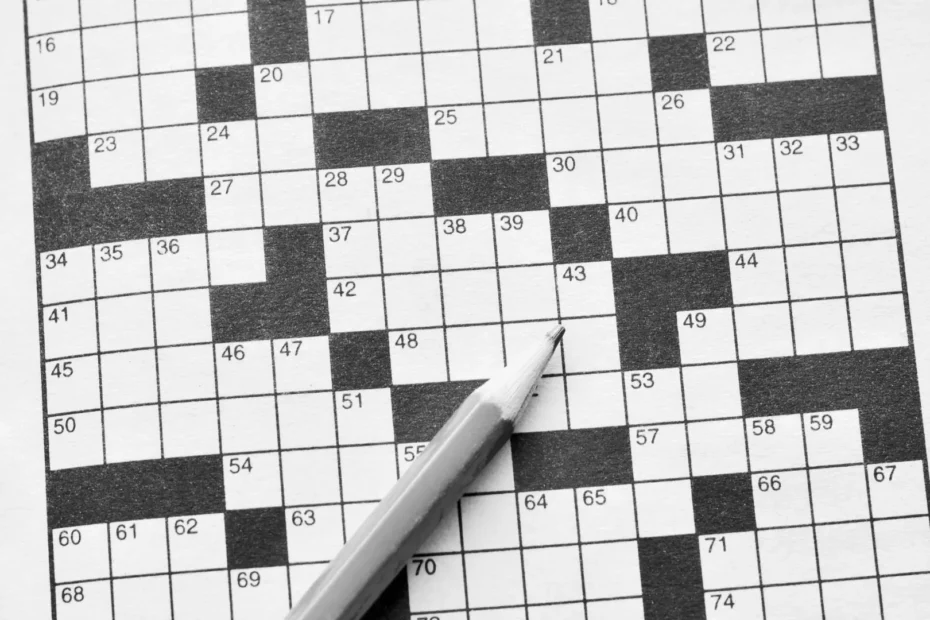Crossword puzzles are more than just a fun pastime; they’re a powerful tool for keeping your mind sharp and engaged. Whether you’re solving a themed puzzle or a classic grid, the mental effort involved has real cognitive benefits. These puzzles uniquely challenge your brain, combining logic, language, and problem-solving into one activity.
Unlike passive entertainment like scrolling through social media or watching TV, crossword puzzles require your active participation. They stimulate focus and thought in a way that’s both fun and mentally enriching. The benefits go far beyond general enjoyment — puzzles have been linked to better emotional well-being, as discussed in this article about crosswords and mental health.
What’s more, crossword puzzles aren’t just for adults. Children can benefit from these brain-boosting games as well, especially when puzzles are adapted to their level, something we explore in rethinking crossword puzzles for kids. And if you’re looking to add some variety to your puzzle routine, check out these fun online word games to play that offer a similar cognitive boost.
Memory Improvement
One of the most significant benefits of crossword puzzles is how they aid memory retention. Regularly recalling words, facts, and associations activates both short-term and long-term memory. This mental exercise strengthens neural pathways and helps reduce age-related memory loss.
For example, when you’re trying to remember a five-letter synonym for “happy” or a capital city in South America, your brain works to retrieve stored information. This repeated practice reinforces connections in the brain. Over time, you may notice you’re better at remembering everyday things — from shopping lists to people’s names. Puzzles essentially give your memory muscles a full workout.
Better Focus and Concentration
When working through a crossword, your brain needs to concentrate on clues, context, and possible word fits. This level of sustained attention trains your mind to focus more effectively, which can help in both academic and everyday settings.
In our increasingly distracted world, practicing focus is more important than ever. Crossword puzzles force you to sit still, think carefully, and block out distractions, all critical skills for productivity. Each clue is like a mini task requiring your undivided attention. As you progress through a puzzle, your ability to stay mentally engaged sharpens, creating ripple effects in work, study, and conversations.
Vocabulary and Language Skills
Each puzzle introduces new terms, synonyms, idioms, and even historical or cultural references. Over time, you build a richer vocabulary and a deeper understanding of word meanings and language structure. It’s a subtle but powerful form of learning through play.
If English isn’t your first language, crossword puzzles can also serve as a fun and effective language-learning tool. You’re exposed to different ways of saying things, common phrases, and regional expressions. By encountering unfamiliar words in context, you not only learn their meaning but also how they’re used. This boosts reading comprehension and improves writing and speaking skills, too.
Mental Stimulation and Problem-Solving
Crosswords engage critical thinking and problem-solving abilities. Finding the right word often means approaching a clue from multiple angles. This strengthens logic, reasoning, and even creative thinking, all essential cognitive functions.
The problem-solving process is often non-linear. You might need to skip a clue, solve another one, and then circle back with fresh insight. This mirrors real-life challenges that require flexibility and persistence. Unlike other brain games, crosswords also engage emotional intelligence, humor, puns, and cultural clues play a role. The process is both analytical and intuitive, making it one of the most balanced forms of brain training available.
Brain Health Over Time
Research shows that mentally stimulating activities like crosswords can help delay cognitive decline and reduce the risk of conditions like Alzheimer’s disease. Keeping your mind active with puzzles supports overall brain health well into older age.
Think of your brain as a muscle; the more you use it, the stronger it becomes. Regular mental challenges help increase cognitive reserve, which is your brain’s ability to adapt and find new ways to complete tasks. Even for younger adults, engaging in crosswords now lays a strong foundation for future mental resilience. It’s a low-cost, low-tech way to invest in lifelong brain health.
Make Crosswords Part of Your Routine
Adding crosswords to your daily schedule doesn’t just entertain, it builds brain strength. You can start with easy puzzles to build confidence or dive into daily challenges to stay sharp consistently.
Consider integrating a puzzle into your morning routine, during a lunch break, or before bed. You might even want to keep a printed puzzle handy for screen-free brain engagement. Doing just one a day can make a noticeable difference in your focus, memory, and vocabulary. Plus, it’s a relaxing way to unwind that still stimulates your mind. Brain fitness can and should be fun.
In short, playing crossword puzzles is a simple yet effective way to boost your brainpower. Give your mind the workout it deserves, one word at a time.

